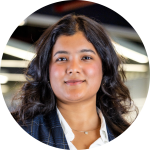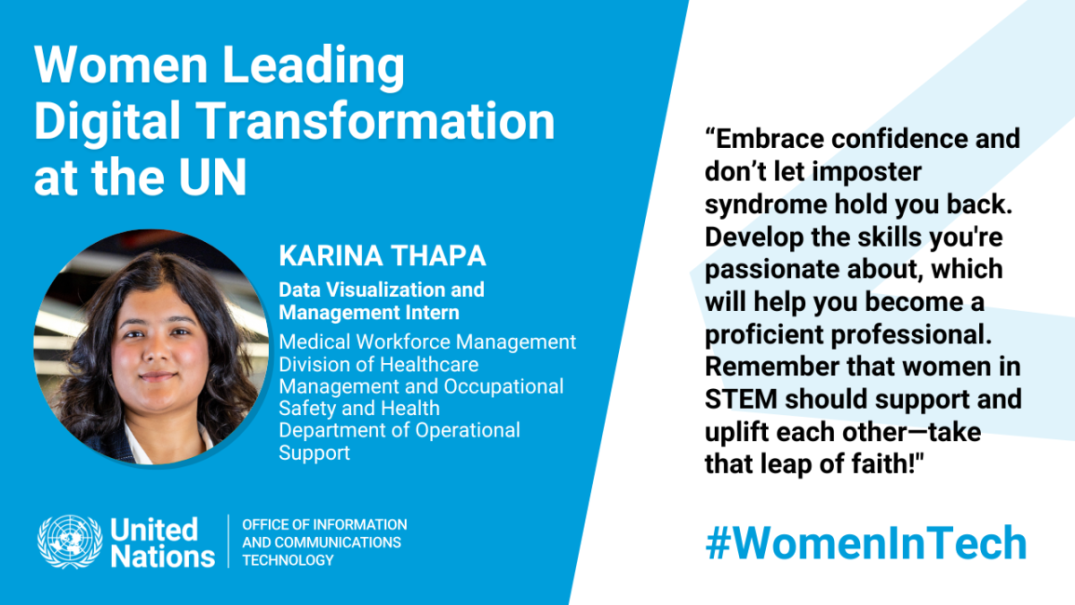Read about Karina Thapa


Karina Thapa
Data Visualization and Management Intern
Medical Workforce Management, Division of Healthcare Management and Occupational Safety and Health, Department of Operational Support
What brought you to a career in technology at the United Nations?
I've been passionate about technology since my teenage years when I first started coding in QBASIC. During high school, I developed a deep interest in computer science, which led me to pursue it as my major in college. Through various internships, I gained practical experience and expanded my skills, which ultimately set the foundation for my career in technology.
After completing my undergraduate degree, I went on to pursue a Master’s in Data Analytics and Visualization at a graduate school in New York City. This experience opened many doors for me, from teaching 'Statistics' at a women’s school to working as a data analyst in a healthcare company. It was a time of immense growth, both professionally and personally, as I was able to apply my technical skills in diverse, impactful ways.
The technology landscape underwent significant changes between 2010 and 2020, and it was during this period as a teenager and a growing adult during that time that I truly realized the immense potential of innovation to address global challenges. My passion for using technology to solve complex problems, which had been with me since high school, guided my decision to pursue opportunities where I could make a meaningful impact.
After graduation, I applied for several positions at the United Nations, and I was fortunate to receive offers from all of them. The opportunity to work in an organization that leverages technology for global progress felt like the perfect next step in my journey. This career path allows me to combine my passion for technology with my desire to contribute to the greater good, which is why I chose to pursue a career in tech at the United Nations..
What has been your favorite technology project or initiative at the United Nations and why? What was your contribution?
At the United Nations, I have the opportunity to work with a variety of tools and technologies, including Power BI, Excel, and other data visualization platforms. While I don't work on a single, pointed project, I am involved in several impactful initiatives that allow me to apply my skills in data cleaning, reshaping, and visualization.
One of the areas I particularly enjoy is working on projects that visualize the healthcare and health status of the UN Headquarters all around the globe. I help to analyze their quarterly reports, creating clear, insightful visualizations that support decision-making. This makes it easier to better understand key trends and take informed actions.
Also, I find exploring and working with the vast amount of data on the site data.un.org particularly exciting. The huge volume and variety of data available allows me to create engaging and informative visualizations, from bar charts to interactive graphs, which ultimately make decision-making processes more efficient and accessible.
Overall, what I truly enjoy is the diversity of tasks I get to contribute to. Whether it's working on healthcare data or exploring global datasets, I find satisfaction in turning complex information into clear and actionable insights, and I appreciate the opportunity to make a difference, even through the small tasks I’m involved in.
What advice would you give women interested in pursuing a field in technology?
My advice to women in tech is to embrace confidence and not let imposter syndrome hold you back. Focus on developing the skills you're passionate about, which will help you become proficient and professional. Ignore the noise from social media and boot camps, and remember that women in STEM should support and uplift each other—take that leap of faith!


